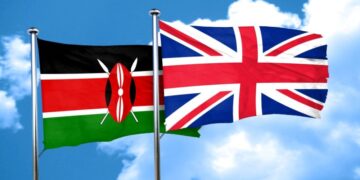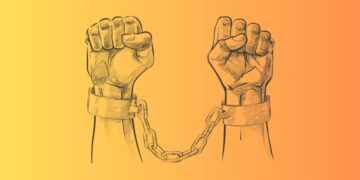The Secret Intelligence Service (SIS), commonly known as MI6, is the foreign intelligence service of the government of the United Kingdom, tasked mainly with the covert overseas collection and analysis of human intelligence (HUMINT) in support of the UK’s national security. SIS is a member of the country’s intelligence community and its Chief is accountable to the country’s Foreign Secretary. The name MI6 (meaning Military Intelligence, Section 6) originated as a flag of convenience during World War II, when SIS was known by many names.
The Central Intelligence Agency (CIA) is a civilian foreign intelligence service of the federal government of the United States, tasked with gathering, processing, and analyzing national security information from around the world, primarily through the use of human intelligence (HUMINT). As one of the principal members of the United States Intelligence Community (IC), the CIA reports to the Director of National Intelligence and is primarily focused on providing intelligence for the President and Cabinet of the United States.
1. Purpose
It’s important to note the difference between MI5 and MI6. MI5 works in the UK catching foreign spies, while MI6 is basically UK spies abroad. MI6, or the Secret Intelligence Service (SIS), its raison d’etre is protecting the UK’s national security. The priority roles of MI6 are counter-terrorism, counter-proliferation, providing intelligence in support of cyber security, and supporting stability overseas to disrupt terrorism and other criminal activities.
Unlike its main sister agencies, the Security Service (MI5) and Government Communications Headquarters (GCHQ), MI6 works exclusively in foreign intelligence gathering. The CIA was created in the interest of the USA’s national security. This might well indeed mean spying on other countries, or even keeping tabs on US citizens – although how much that actually happens is a matter of debate.
The agency is involved with terrorism, weapons of mass destruction, cyber-intelligence, and generally keeping an eye on what is happening politically around the world and trying to ensure it doesn’t negatively affect America. Throughout the years, the CIA has increasingly expanded its role, to include covert paramilitary operations.
2. Creation
In the early 1900s, the British government was increasingly concerned about the threat to its Empire posed by Germany’s imperial ambitions. The Brits also wanted to hold onto their global dominance and wealth, so they needed to keep the Germans from becoming too powerful. It was believed at the time that Germany had its own spies wandering around the streets of England, so in 1909 Prime Minister Herbert Asquith created the Secret Service Bureau.
It wasn’t only Germany that worried the UK, but also the Soviet Union and its communist ambitions. That’s why the bureau’s best spy met the Grim Reaper in the face of the trigger-happy, master of pogroms, Joseph Stalin. The CIA was created on July 26, 1947, when Harry S. Truman signed off on the National Security Act. It was the attack on Pearl Harbor that proved to be the greatest impetus to start such a covert agency.
3. Ethics
Some of MI6’s actions since the 2000s have attracted significant controversy, such as its alleged acts of torture and extraordinary rendition. MI6 actually worked with the Nazi secret police, the Gestapo, to thwart the rise of communism. It was also revealed that MI6 agents were actually passing secrets to Russia, and even two politicians were found to be working for the KGB. The bureau might be most famous for its Cryptanalysis, which was breaking codes using cryptographic algorithms.
MI6 was verily the first computer hacker on a large scale, creating the foundations for modern computing. Later, MI6 had its hands full with the IRA, and throughout the 70s and 80s concentrated on international terrorism. Its intelligence wasn’t always that intelligent, which was demonstrated when it told the world there were weapons of mass destruction in Iraq. One of the latest programs of MI6 is to spy on North Korea. After its formation, the CIA had a hand in many countries’ affairs. It’s operations at times could be said to be dubious.
Some of the more famous operations actually include trying to find out who in Britain was working for the Russians. It was working underground in Jamaica in the 70s – and no, there’s no proof the CIA killed Bob Marley – fixing coup d’états in Iran and Indonesia, and generally making sure communism didn’t pick up too much traction as it was a threat to global democracy and America’s dominance. That’s quite the position the CIA holds in the world, though many people believe the CIA is lacking in ethics.
4. Employees
MI6 is based in London, and it has agents all over the globe. It’s much smaller than the CIA, employing around 2,479 people. The CIA has its headquarters in Langley, Virginia, but its secret agents work all over the world. It has a number of regular workers of course, and many of those can be found in Washington DC. It’s thought the agency employs around 21,575 people.
5. Budget
It’s thought that MI6’s budget is around $3.5 billion (£2.7 billion). The CIA budget is approximately $14 billion. This is only one part of the USA’s ‘Black Budget’, a kind of secret budget that was revealed when Edward Snowden released the classified CIA files. It’s thought the black budget is well over $50 billion.
6. Recruitment
To become an intelligence agent for MI6, you’ll need to be at least 22. You need a university degree, but any major it seems will do. You then have to take a six-week Foundation Investigative Training Course and after that you’ll be training for two years before you become a proper agent. On its website, MI6 explains that you’ll go through thorough background checks, medical tests, and if you’ve taken any illegal drugs, you are gone.
The interview and screening are stressful, they point out, stating, “It’s a long process, up to three months in most cases, and it takes a very fair, in-depth and pretty intrusive look at your life, including your finances. It’s important to be aware of this commitment before you apply.” You are also supposed to say nothing to anyone about your application, as the bureau pretty much picks apart your life.
You can do all sorts of things in the CIA, but let’s focus on agents rather than accountants. Most of its undercover employees are aged between 26 and 35. They all go through thorough medical and background checks, not to mention polygraphs, which are also a part of the interview process. They need a university degree, knowledge of international affairs, and good foreign language skills. Other assets include strong negotiation skills, discretion, diplomacy, and criminal investigative experience.
Ideally, your degree will be in criminology, homeland security, or emergency management. All present agents have undergone a 56-day Criminal Investigation Training Program and they will have trained for a further 18 months at the CIA’s headquarters. On the CIA website, it doesn’t say that agents are required to do any kind of physical test, but it does say they must be in “excellent physical and psychological health”.
7. Experience
Former MI6 intelligence officer, Harry Ferguson, told The Guardian what it was like working for the organization. He actually said it did all start a little like a movie, with someone approaching him while he was a student at Oxford and asking quietly, “Have you ever thought of working for your country?” After he nodded, he later received an anonymous envelope containing a description of where to go for an interview.
He said they are looking for “independent, self-driven people”, because once you land the job, he says it can be very lonely. It’s not necessarily as dangerous as people think, and it can be mundane, but the biggest downside is, “Knowing someone else was imprisoned, tortured or killed because you didn’t do your job properly.” That can be quite a terrible burden. It can be lonely, if you go deep undercover as a CIA agent. You can’t tell anyone what you do exactly, and you will even keep secrets from your own family.
On the CIA website, it gives 10 reasons why you should work there, which includes working with very smart people, having an exciting job, being at the forefront of global politics, and also receiving great benefits. One CIA agent of 15 years said he loved the job at times, telling Business Insider, “A lot of the field work provided incredible moments both in terms of personal satisfaction in my work and in awe at catching a glimpse of the breadth of diversity in this world.” He also said it’s nothing like Hollywood depicts.
8. Risk
MI6 officers basically spend most of their time trying to recruit people to give them information, so they mostly stay away from danger. The CIA is more dangerous, as their officers are semi-military.
9. Salary
For MI6, you’ll start on a salary of $40,000 (£30,937). This will go up after around 5 years’ service to $53,000 (£40,992). New CIA agents receive about $47,000, but a senior agent might earn more than $130,000 a year. The more senior you become, the more you get.



































































































































































































Some info here